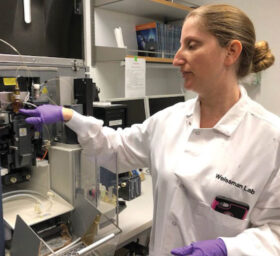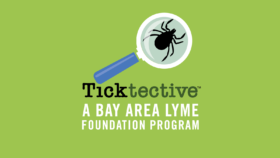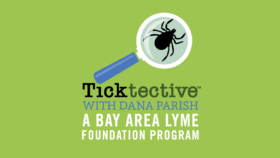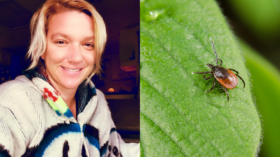FOR IMMEDIATE RELEASE
Bay Area Lyme Foundation Opens Applications for 2025 Emerging Leader Award and Research Grant
In its tenth year, the annual grant encourages novel approaches to revolutionizing diagnosis and treatment of tick-borne diseases
PORTOLA VALLEY, Calif., October 31, 2024 – Bay Area Lyme Foundation, a leading sponsor of Lyme disease research in the U.S., invites innovative researchers from academia and the private sector to apply for the 2025 Emerging Leader Awards (ELA). These awards recognize those advancing novel approaches in Lyme disease diagnostics and treatments, while embodying the future of Lyme disease research leadership. This year, in its tenth anniversary, Bay Area Lyme Foundation’s ELA will present two $150,000 awards for researchers who are at the post-doctoral level through associate professor level or equivalent.
While applicants must have a defined scientific approach to advancing diagnostics and/or therapeutics for Lyme disease, the grants are open to researchers from other therapeutic areas in addition to those who have previously investigated Lyme disease. Applications will be accepted through March 7, 2025 at 11:59pm, Pacific Time. The full criteria and application for this award can be found at www.bayarealyme.org/our-research/emerging-leader-award/.
“The global impact of both acute and chronic infections has never been more apparent, and tackling an infectious disease as complex as Lyme requires innovative approaches and concerted efforts to drive progress in diagnostics and treatment,” said Wendy Adams, research grant director Bay Area Lyme Foundation. “Our goal with the Emerging Leader Award is to inspire ambitious and creative scientists to take on the challenge of advancing accurate diagnostics and effective therapeutics for various stages of tick-borne diseases.”



 “I want to leave you with hope. I think we’re going to be unstoppable because I think that these are solvable problems. These are answerable questions. I think that there are already a lot of existing tools in immunology that just need to be brought into the fight, and we can change this.”
“I want to leave you with hope. I think we’re going to be unstoppable because I think that these are solvable problems. These are answerable questions. I think that there are already a lot of existing tools in immunology that just need to be brought into the fight, and we can change this.”  Any respectable pathogen that can establish a persistent infection needs to figure out your immune system to the point that it can evade it. The fact that it has persisted means that it was able to evade your immune clearance. And so, I got to that from a very interesting direction working on immune regulation, trying to understand these brakes on the immune response and how they impact the response to infection. The immune system has the power to kill you and obviously, nobody has any incentive for that to happen. So, there are a lot of mechanisms in place to put brakes on the immune system and reign it in. One of the huge developments in cancer over the last two decades has been reevaluating the question: can we take those brakes off? So in my postdoc, I was studying a particular checkpoint where this was turning into an exciting immuno-oncology target, and I said, ‘I want to look at how this checkpoint is used in infection.’ I realized that this checkpoint was being used to help you survive an acute infection, but created a vulnerability for pathogens to evade immune clearance and establish chronic infection much like it allows cancer cells to evade immune clearance. In an amazing collaboration with Irv Weissman, Balyn Zaro, and Jenifer Coburn we realized that the bacteria that cause Lyme disease manipulate this brake and that’s how I became fascinated with Lyme. But I also became concerned about turning off this brake in cancer patients because I was concerned about what would happen if you used this on cancer patients during an active infection. Indeed, the
Any respectable pathogen that can establish a persistent infection needs to figure out your immune system to the point that it can evade it. The fact that it has persisted means that it was able to evade your immune clearance. And so, I got to that from a very interesting direction working on immune regulation, trying to understand these brakes on the immune response and how they impact the response to infection. The immune system has the power to kill you and obviously, nobody has any incentive for that to happen. So, there are a lot of mechanisms in place to put brakes on the immune system and reign it in. One of the huge developments in cancer over the last two decades has been reevaluating the question: can we take those brakes off? So in my postdoc, I was studying a particular checkpoint where this was turning into an exciting immuno-oncology target, and I said, ‘I want to look at how this checkpoint is used in infection.’ I realized that this checkpoint was being used to help you survive an acute infection, but created a vulnerability for pathogens to evade immune clearance and establish chronic infection much like it allows cancer cells to evade immune clearance. In an amazing collaboration with Irv Weissman, Balyn Zaro, and Jenifer Coburn we realized that the bacteria that cause Lyme disease manipulate this brake and that’s how I became fascinated with Lyme. But I also became concerned about turning off this brake in cancer patients because I was concerned about what would happen if you used this on cancer patients during an active infection. Indeed, the 


 Charlotte Mao:
Charlotte Mao:

